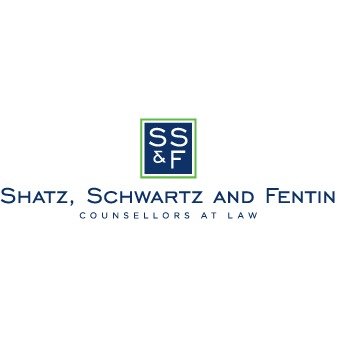Best Natural Resources Lawyers in Northampton
Share your needs with us, get contacted by law firms.
Free. Takes 2 min.
List of the best lawyers in Northampton, United States
About Natural Resources Law in Northampton, United States
Natural resources law in Northampton, United States, encompasses the regulation and management of resources such as water, minerals, forests, and wildlife. It involves both state and local laws, with a focus on conservation, sustainable use, and environmental protection. Northampton, located in Massachusetts, benefits from a rich diversity of natural resources. State and local governments play a significant role in implementing and enforcing regulations to ensure the protection and sustainable use of these resources.
Why You May Need a Lawyer
There are several situations where individuals or organizations might require legal assistance in the realm of natural resources in Northampton. These include:
- Disputes over land use and resource extraction rights.
- Compliance with environmental regulations and zoning laws.
- Negotiating terms in resource management agreements or permits.
- Addressing concerns of Native American tribes and their rights related to natural resources.
- Litigation related to pollution, contamination, or damage to natural resources.
- Support in planning and conducting environmental impact assessments.
Local Laws Overview
Northampton is governed by a combination of federal, state, and local laws. Key local legal aspects relevant to natural resources include:
- Massachusetts Wetlands Protection Act: Protects wetlands by requiring permits for activities that may alter these ecosystems.
- Conservation Commissions: Local commissions in Northampton oversee the protection of natural resources as part of municipal government functions.
- Local Zoning Ordinances: Regulations governing the use of land and the types of activities permissible, often impacting resource extraction and development.
- Massachusetts Environmental Policy Act (MEPA): Requires environmental review of certain projects to ensure they do not harm state’s natural resources.
Frequently Asked Questions
What agencies are involved in natural resources regulation in Northampton?
The Massachusetts Department of Environmental Protection and local Conservation Commissions are primarily involved, along with federal agencies for specific concerns.
What is a conservation restriction, and how can it affect my property?
A conservation restriction is a legal agreement that limits the use of a property to protect its conservation values. It can limit development and require certain land management practices.
How do I know if I need a permit for a construction project near a wetland?
You will need to contact the Northampton Conservation Commission or a local attorney for guidance based on the specific location and nature of your project.
What are my rights regarding mineral resources on my property?
Ownership rights to minerals can depend on various factors including property deeds and local laws. Consulting a lawyer can clarify individual entitlements and restrictions.
Can I challenge a government decision impacting natural resources in my area?
Yes, legal options might be available through agencies or courts. An attorney can advise on the best course of action.
Are there legal protections for wildlife on my land?
Yes, state and federal laws protect certain species and habitats, which can impact land use and management practices.
How does the Massachusetts Environmental Policy Act affect land development?
MEPA requires certain projects to undergo environmental impact assessments which can influence project design and feasibility.
What should I do if I suspect environmental law violations in my area?
Reporting to local authorities, Conservation Commissions, or the Department of Environmental Protection are initial steps. Legal counsel can further assist in such cases.
Are there tax incentives for conserving my natural resources?
Yes, there are potential tax benefits and grants available for land conservation efforts through government programs.
How can I ensure compliance with both state and local environmental regulations?
Engaging with a knowledgeable attorney in natural resources law can help navigate complex regulatory landscapes and ensure adherence to all applicable laws.
Additional Resources
Consider utilizing the following resources for further assistance:
- Massachusetts Department of Environmental Protection: Oversees state-wide environmental compliance and resource protection.
- Local Conservation Commissions: Act as the administrative arm for enforcing environmental protection laws in the community.
- Mass Audubon Society: Offers resources and advocacy for conservation in Massachusetts.
Next Steps
If you find yourself in need of legal assistance regarding natural resources in Northampton, consider the following steps:
- Begin by consulting legal professionals specializing in natural resources law to discuss your specific situation.
- Gather pertinent documentation, contracts, titles, permits, or any communications related to your issue.
- Schedule a meeting or consultation with a lawyer to explore your options and develop a strategic approach to your case.
- Stay informed about ongoing changes in local and state legislation that may impact your rights and responsibilities.
Lawzana helps you find the best lawyers and law firms in Northampton through a curated and pre-screened list of qualified legal professionals. Our platform offers rankings and detailed profiles of attorneys and law firms, allowing you to compare based on practice areas, including Natural Resources, experience, and client feedback.
Each profile includes a description of the firm's areas of practice, client reviews, team members and partners, year of establishment, spoken languages, office locations, contact information, social media presence, and any published articles or resources. Most firms on our platform speak English and are experienced in both local and international legal matters.
Get a quote from top-rated law firms in Northampton, United States — quickly, securely, and without unnecessary hassle.
Disclaimer:
The information provided on this page is for general informational purposes only and does not constitute legal advice. While we strive to ensure the accuracy and relevance of the content, legal information may change over time, and interpretations of the law can vary. You should always consult with a qualified legal professional for advice specific to your situation.
We disclaim all liability for actions taken or not taken based on the content of this page. If you believe any information is incorrect or outdated, please contact us, and we will review and update it where appropriate.








